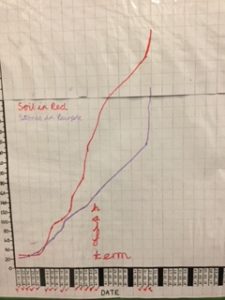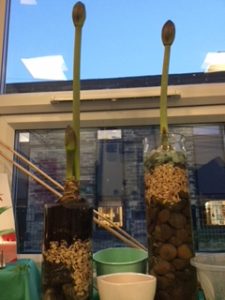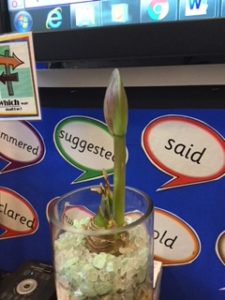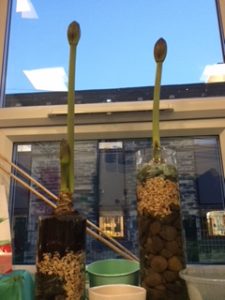Scientific enquiries are what children do in order to answer scientific questions about the world around them.
What are the benefits of scientific enquiry?
As children carry out scientific enquiries, they develop a host of skills and competencies, knowledge and understanding, bringing enormous benefits to them as growing scientists.
Scientific enquiry increases children’s capacity to:
- problem-solve and answer questions
- work with independence
- ‘be a scientist’
- communicate effectively
One way to work scientifically is to carry out an observation over time. In Year 4, we are doing this using two amaryllis bulbs. The children are observing and recording information on a daily basis. This involves measuring, recording, observing changes and watering if needed. Each day, the observation generates questions.
What happens if…
“Predict what you think would happen to the growth of the plant if we added some plant food.”
Over the half term holidays, the bulb, planted in stones, had a small amount of plant food added to its water. Year 4 made predictions about whether or not the food would make any difference to the plant’s growth.
- “I think the plant will grow a lot more as it is getting nutrients from the food.”
- “Why is the stem leaning?”
- “Do you think we can see rapid growth? How can you prove this?”
We studied the line graph and the children used great scientific language to describe the changes they could see. The purple line represents the the plant given food.
- “The plant that had food is growing rapidly now! I know this because the purple line is now moving up vertically and before it was quite steady.”
- “I wonder why the speed of the growth has changed?”


- “Do you think this speed of growth will continue?”
Bulbs before half term and…


…after half term!
